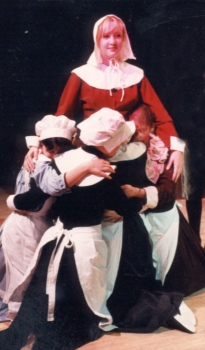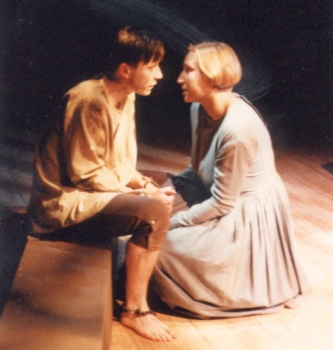
4 performances
Teddington School, United Kingdom
And this is based on true happenings. Taking as the basis, the Salem witch hunts of 1692, Arthur Miller demonstrates it's contemporary, social relevance, drawing the parallel between this event and the McCarthyism that gripped America in the 1950's.
As the small Salem community is stirred into madness and the play reaches it's violent cilmax, the events it describes, become a timeless vision of the evils of mindless persecution.
Set in Salem, Massachusetts, 1692, a community stands accused of witchcraft, and in the mood of fear and recriminations that develops, men denounce their neighbours and truth is perverted by superstition. As the small Salem community is stirred into madness and the play reaches it's violent climax, the events it describes, become a timeless vision of the evils of mindless persecution.



